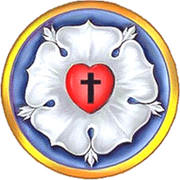Adam

Adam, who was created in innocence and righteousness.
…this knowledge in Adam was an outstanding gift of God, so it also pleased God exceedingly and delighted Him. Therefore He commands him to make use of this knowledge by giving names to all the animals.
Thus Adam was created alone; later on the animals were brought to him, and Adam was put to a test whether he could find or see a partner in that group; finally Eve was created. And because these definite words, “From every tree you will eat,” struck Adam’s ears, this proves that they were all spoken in time at intervals, unless you wish to turn senseless allegories after the manner of Origen. For the subject under discussion here is not God, in whose sight all past and future events are present ones, but Adam, who was in time and lived in time, and with whom there was a difference between the future and the past, just as with any creature.
That Adam was created on the sixth day, that the animals were brought to him, that he heard the Lord giving him a command regarding the tree of the knowledge of good and evil, that the Lord sent a sleep upon him—all these facts clearly refer to time and physical life. Therefore it is necessary to understand these days as actual days, contrary to the opinion of the holy fathers. Whenever we see that the opinions of the fathers are not in agreement with Scripture, we respectfully bear with them and acknowledge them as our forefathers; but we do not on their account give up the authority of Scripture. Aristotle’s statement in the first book of his Ethics is well put and true: “Better it is to defend the truth than to be too much devoted to those who are our friends and relatives.”( In his Nicomachean Ethics, I, ch. 6, Aristotle says: “While both are dear, piety requires us to honor truth above our friends.”) And this is, above all, the proper attitude for a philosopher. For although both; truth and friends, are dear to us, preference must be given to truth. (The statement of Aristotle quoted had become a proverb in the form: “Plato is dear to me, but dearer still is truth.”) –Martin Luther

2 Comments:
Mr. Wartburg,
What is the origin of the symbol on this post?
Martin Luther personally oversaw the creation of this symbol. Here is how Luther explained the meaning of his seal:"Grace and peace from the Lord. As you desire to know whether my painted seal, which you sent to me, has hit the mark, I shall answer most amiably and tell you my original thoughts and reason about why my seal is a symbol of my theology. The first should be a black cross in a heart, which retains its natural color, so that I myself would be reminded that faith in the Crucified saves us. For one who believes from the heart will be justified" (Rom. 10:10). Although it is indeed a black cross, which mortifies and which should also cause pain, it leaves the heart in its natural color. It does not corrupt nature, that is, it does not kill but keeps alive. "The just shall live by faith" (Rom. 1:17) but by faith in the crucified. Such a heart should stand in the middle of a white rose, to show that faith gives joy, comfort, and peace. In other words, it places the believer into a white, joyous rose, for this faith does not give peace and joy like the world gives (John 14:27). That is why the rose should be white and not red, for white is the color of the spirits and the angels (cf. Matthew 28:3; John 20:12). Such a rose should stand in a sky-blue field, symbolizing that such joy in spirit and faith is a beginning of the heavenly future joy, which begins already, but is grasped in hope, not yet revealed. And around this field is a golden ring, symbolizing that such blessedness in Heaven lasts forever and has no end. Such blessedness is exquisite, beyond all joy and goods, just as gold is the most valuable, most precious and best metal.This is my compendium theoligae [summary of theology]. I have wanted to show it to you in good friendship, hoping for your appreciation. May Christ, our beloved Lord, be with your spirit until the life hereafter. Amen."
Post a Comment
<< Home